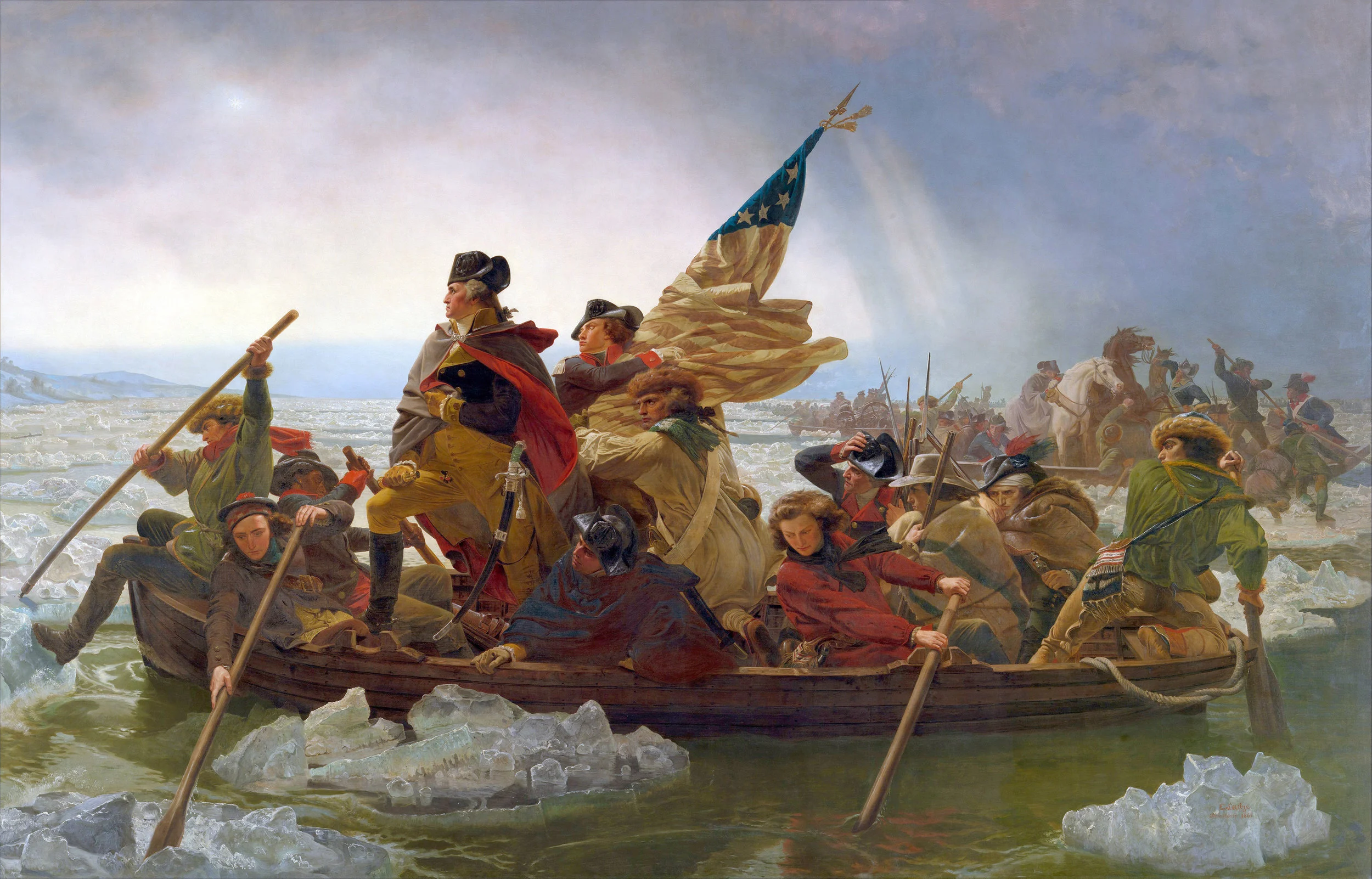#1 | Washington's Historic Crossing of the Delaware
Start your walk at the historic marker along the Delaware River. The marker designates the site where Washington and his troops landed after crossing the Delaware River on the night of December 25, 1776.
By early that month, Washington and his Continental Army had retreated across New Jersey with the British in hot pursuit. As he moved across the state, General Washington ordered all available boats along the Delaware River to be commandeered. In early December he used this flotilla to cross the Delaware into Pennsylvania at Trenton, successfully putting the river between his army and the British. However they were battered and exhausted, and enlistments would expire at the end of the month.
Washington desperately needed a victory to put heart back into his cause and encourage enlistments. Along the banks of the Delaware he made the decision to attack the garrison at Trenton, which was held by German mercenaries known as Hessians.
On Christmas night after sunset, Washington and some 2,400 Continental troops, along with their horses and cannons, began to cross. The river was choked with ice. By midnight a nor’easter had blown in, bringing snow and hail. Our entire nation’s future lie in the balance.
MORE OF THE STORY:
General George Washington, after losing New York to the British, led his rebel army in retreat through New Jersey and on Sunday, December 8, 1776, he crossed the Delaware River into Pennsylvania. He commandeered every available boat along the river so that Lord Cornwallis’s army would be unable to pursue him to attack Philadelphia and capture the Continental Congress.
Directly across from the viewing point, near the Pennsylvania shore, is the island behind which Washington hid the Durham and ferry boats for his return on Christmas night 1776 to attack the British mercenary Hessian troops in Trenton.
By his daring victory at Trenton, Washington and his Continental army restored the ebbing spirit of the colonies in their struggle for independence from Britain, and paved the way for the ultimate victory over Cornwallis five years later at Yorktown, Virginia.


